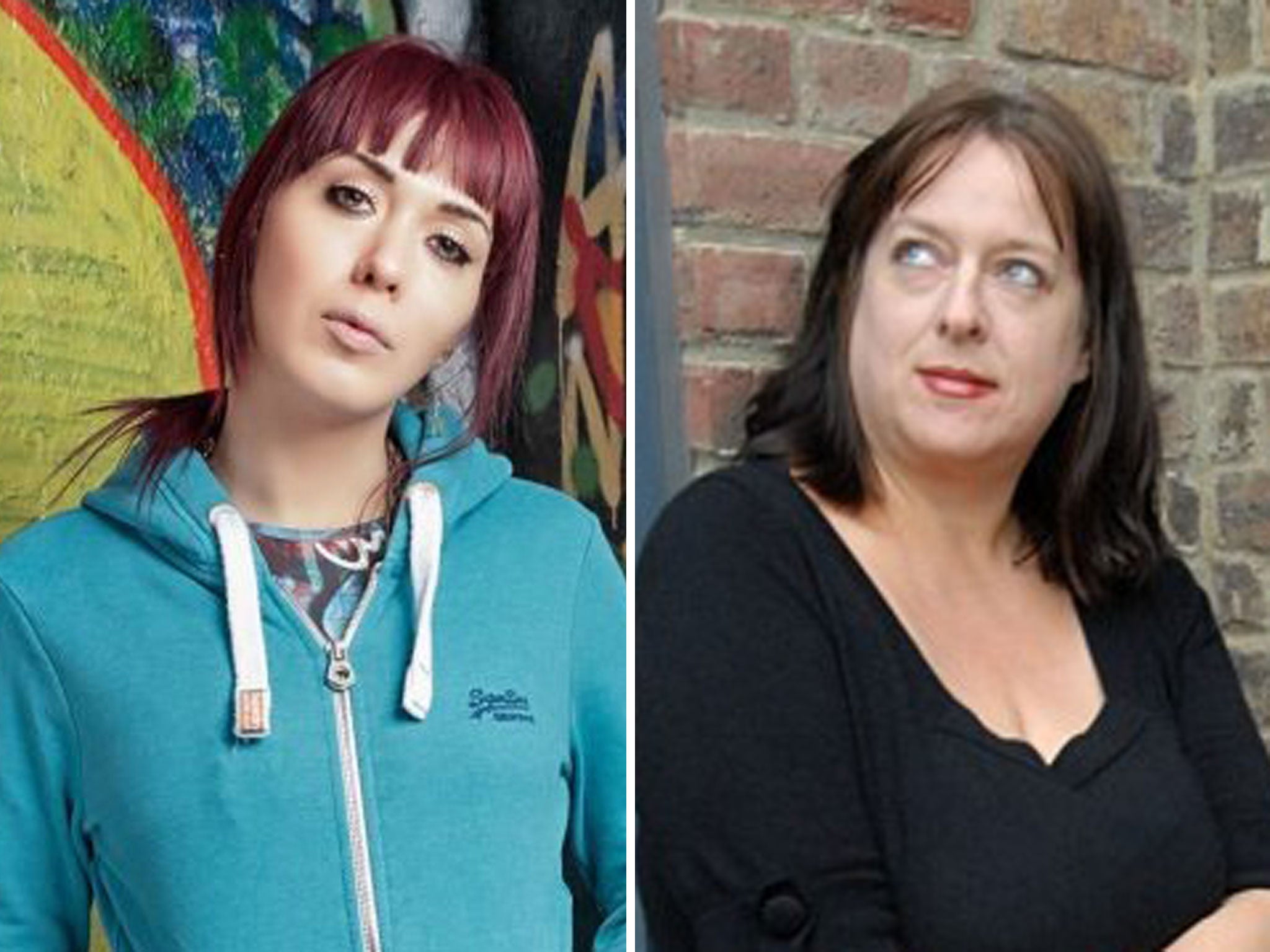Don't get mad, get even: Paris Lees responds to Julie Burchill's attack about the concept of intersectionality
The acclaimed transgender rights activist topped The Independent on Sunday's 2013 Pink List. But last week she and journalist Julie Burchill had a tempestuous debate about the ways in which different forms of discrimination, such as race, gender and class, interlock

Your support helps us to tell the story
From reproductive rights to climate change to Big Tech, The Independent is on the ground when the story is developing. Whether it's investigating the financials of Elon Musk's pro-Trump PAC or producing our latest documentary, 'The A Word', which shines a light on the American women fighting for reproductive rights, we know how important it is to parse out the facts from the messaging.
At such a critical moment in US history, we need reporters on the ground. Your donation allows us to keep sending journalists to speak to both sides of the story.
The Independent is trusted by Americans across the entire political spectrum. And unlike many other quality news outlets, we choose not to lock Americans out of our reporting and analysis with paywalls. We believe quality journalism should be available to everyone, paid for by those who can afford it.
Your support makes all the difference.On Wednesday, I made the mistake of taking part in a podcast debate with Julie Burchill for The Spectator. What followed was a harangue from Burchill about why the world had gone to pot because of the left constantly slanging itself. Not that I class Burchill as “the left” any more, mind, but I’m sure that the staunchly feminist gentlemen at the magazine were delighted. I tried hard to play my assigned part but all that came out were inanities. I was crap, frankly. Silly me for not realising that she’d planned a good, old-fashioned personal attack.
When the podcast went live I had the same feeling that I’d had when I threw a plate at the wall during a particularly loud and pointless argument with my boyfriend and realised, to my horror, that the neighbours were in. I’d like to forget about both incidents, but there are more important issues than my pride. So let’s clear a few things up.
Intersectionality is a fairly unattractive word to describe a fairly useful concept. People face multiple forms of prejudice and intersectionality is simply about recognising the difference, say, between being called a “slag” and being called a “black slag”. Burchill says she doesn’t “like” intersectionality – but it’s not a case of liking. You either accept that some people have more to struggle against than you, or you don’t. And you either wish to help them, or you don’t. What she really means is that she doesn’t like transgender people objecting to her cruel and inaccurate jokes – just as some people say they “don’t like” political correctness because really they don’t like gay people asking to be treated with respect.
Burchill misrepresented several of my views. I have never, for example, accused Guardian columnist Suzanne Moore of being a transphobe. In an open letter to Moore last year I made clear that I admire her but was disappointed by her reaction to criticism on Twitter following an unfortunate joke she made about transgender women. Burchill also accused me of being a privileged graduate who probably spent my time at university learning academic jargon at sit-down protests. The truth is that I’m even more common than she is and turned to prostitution to put myself through higher education. It was more “lie down” than “sit-in”.
Solidarity, the sort that Burchill says her dad believed in, was about everyone who was less well-off helping each other to achieve a more equal society. It’s a lovely idea but it wasn’t always successful. Increasing rights for workers didn’t necessarily apply to women, for example.
These days, thankfully, we generally tend to listen to marginalised groups about what they believe will improve their lives. Life has been better for many trans people since we were given the same human rights as everybody else with the passing, 10 years ago, of the Gender Recognition Act. This would never have happened if a few inspirational trans people had not demanded that politicians hear their concerns.
Sadly, listening isn’t a strong point for Burchill and her friend [writer, feminist and Justice for Women co-founder] Julie Bindel who, just like those who try to force people to stop being gay, insist that people like me should stop being trans.
A few years ago, as a headstrong young journalist, I wrote a blog called “Julie Bindel’s Genitals”. It wasn’t about her genitals at all, it simply argued that everyone’s private parts deserve to be private. Bindel was rightly outraged that her genitals might be seen as a subject for public speculation – while remaining seemingly blind to her own assumption that trans people’s genitals are hers to discuss whenever she feels like it.
On Road, the organisation that manages All About Trans (a project that introduces media professionals to young trans people), also works with homeless people, undocumented migrants, travellers and people with mental health issues. Intersectionality isn’t a competition, it is about promoting equal rights for everyone. I suspect that Burchill knows that, deep down, and couldn’t care less.
Join our commenting forum
Join thought-provoking conversations, follow other Independent readers and see their replies
Comments